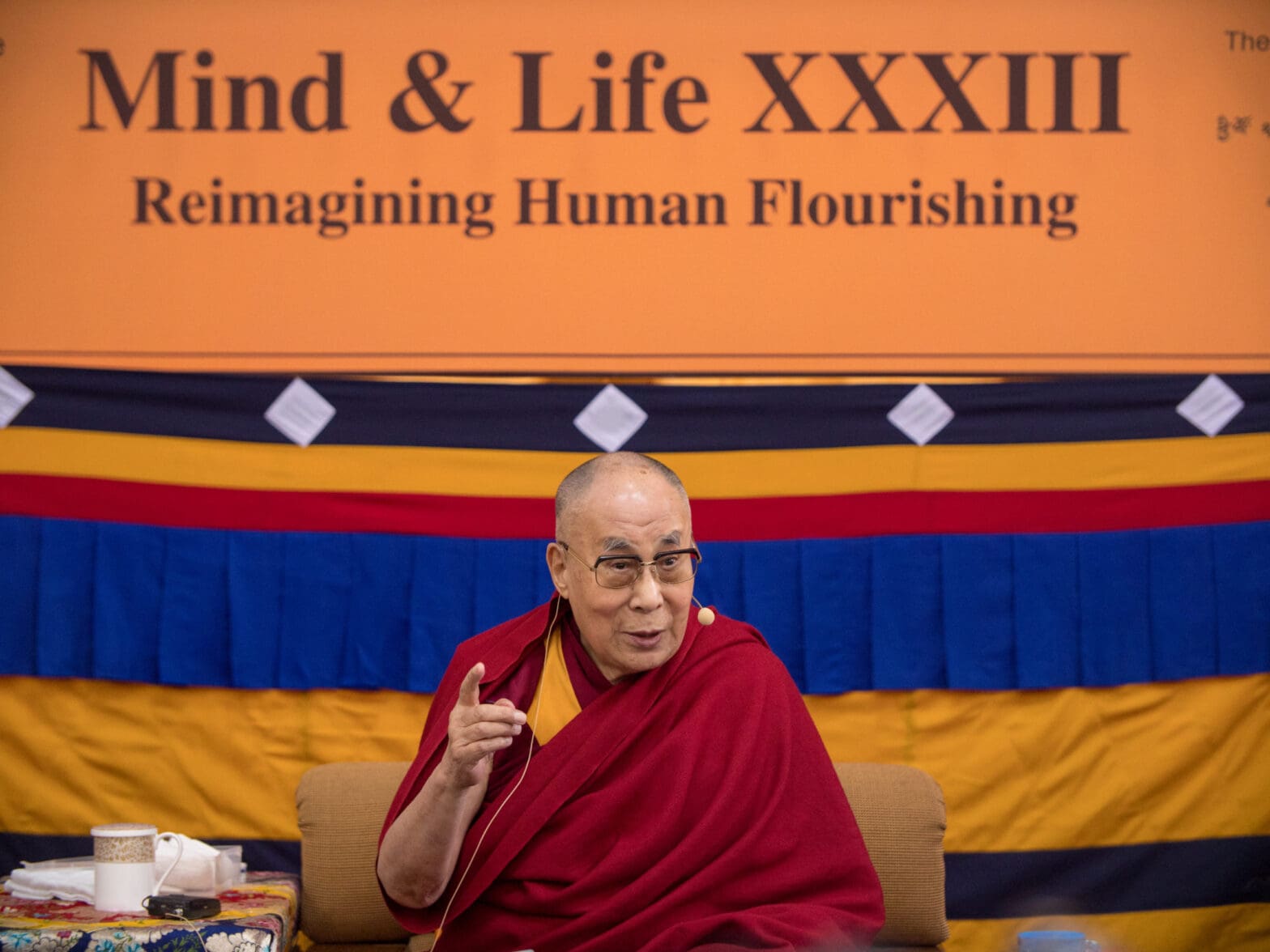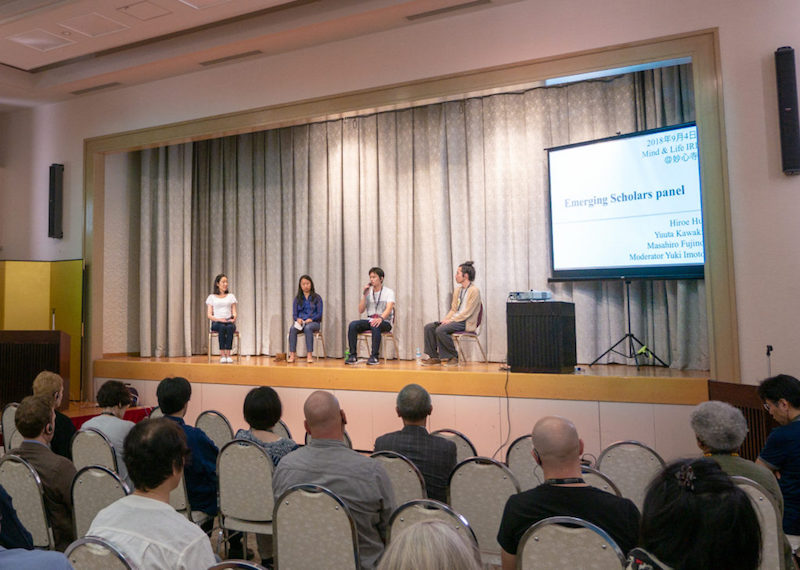The “Reimagining Human Flourishing” Dialogue has a central focus on education, especially in light of His Holiness’ longstanding prioritization of secular ethics education initiatives. It includes a mixture of both scientific and practice-oriented discussions to catalyze the synthetic and integrative opportunity provided by the meeting, taking up crucial questions on how to gain better scientific understanding of key constructs like “attention,” “meta-awareness,” and “emotion regulation,” as well as the practical issue of how to expand the Social Emotional Learning framework to incorporate the teaching of compassion and secular ethics more fully.
Topic Archives:
The Whole Person Sits: Social Imaginaries of Practitioners and Researchers in the Scientific Study of Meditation
In a 1984 interview, Francisco Varela stated that “science, in its core, its active living core, is pure contemplation. It has little or nothing to do with manipulation.” In 2018, the utility of engaging in contemplative practice is pervasively promoted as justified by scientific evidence of its benefits. Yet this evidence is often weak, taken …
Emerging Scholars Panel: Interdisciplinary Panel
Mind & Life believes the voices of emerging scholars in the field of contemplative research are critical in helping to shape the direction of ongoing inquiry. This is an opportunity to engage with an interdisciplinary panel of New Investigators whose work stands at the unique intersection of contemplative practice, scholarship, and applications.
Healing Through Gratitude: Buddhist Theories of Mind and Self-Transformation in the Japanese Contemplative Practice of Naikan
Naikan is a Japanese contemplative practice that was derived and secularized from a Buddhist self-cultivation method. Naikan means “inner-looking” or “introspection.” The practice focuses on recalling the kindness that one has received from others, what one has given in return, and the trouble one has caused others. Unlike some other approaches, such as mainstream psychotherapies, …
Old Insights for A Hectic World: What Does Hakuin Teach Us Today?
This talk explores a well-known writing in the area of meditation in the Japanese Zen tradition entitled Yasenkanna (夜船閑話, or Idle Talk on a Night Boat), one of Hakuin’s autobiographies, written in 1757 by the Zen Master Hakuin Ekaku (1686–1769), a seminal figure who occupies a prominent place in the history of Japanese religion today. …
Continue reading “Old Insights for A Hectic World: What Does Hakuin Teach Us Today?”
Observation of the Mind in Buddhism and Mindfulness
The process of observing the mind in Buddhism is called samatha and vipassanā, and involves placing attention on a certain object (or objects) with awareness. Important facets of this type of observation, also called mindfulness, are noticing objects without using language, and accepting them as they are. According to Buddhism, suffering emerges from a state …
Continue reading “Observation of the Mind in Buddhism and Mindfulness”
The Zen Roots of Contemplative Studies
Contemplative Studies is an emerging academic field that examines a distinctive subset of significant human experiences through a multi- disciplinary perspective that utilizes the sciences, humanities, and the arts. This field takes as its principal task the study of a continuum of human experiences that involve focusing the attention in a sustained fashion leading to …
The Feature and Significance of the Philosophy of Kyoto School
This lecture explores the characteristics and significance of the philosophy of Kyoto School, which came to be known widely but is still not fully clear. Kyoto school, unlike ordinary philosophical schools, did not arise from crit- icisms of preceding schools and postulating a certain thesis. Rather, it was a group naturally formed around Kitaro Nishida …
Continue reading “The Feature and Significance of the Philosophy of Kyoto School”
Contemplative Practice in Context: Embodiment, Enactment and the Cultural Neurophenomenology of Experience
This presentation will examine the relevance of recent work in cognitive science, psychological anthropology, and cultural psychiatry for thinking about context in contemplative science. Theories of embodiment and enactment provide ways to elaborate an ecosocial view of mind that integrates neurobiology and sociocultural contexts. In this view, mental phenomena are produced by looping effects within …
2018 International Research Institute
As the “cultural heart of Japan,” Kyoto is home to longstanding traditions of contemplative practice, philosophy, and scientific research. Inspired by this setting, and its location at the Zen temple complex Myōshin-ji, the theme for this Mind & Life International Research Institute is Contemplative Practice in Context: Culture, History, and Science. This five-day immersive program brings together leading scholars in the sciences and humanities, contemplatives, and artists to examine contemplative epistemologies within a variety of contexts.




